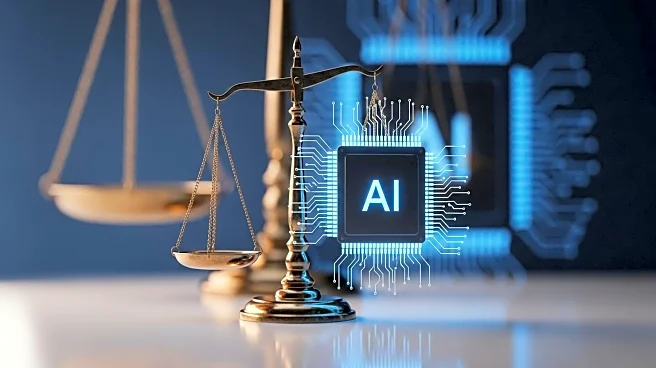What's Happening?
Crosby, a hybrid AI law firm, has successfully raised $20 million in a Series A funding round. The investment was led by Cooley, a California-based firm, with participation from Index Ventures, Bain Capital Ventures, Elad Gil, and Sequoia Capital. Crosby aims to automate human-to-human negotiations, significantly reducing the time required to review contracts. The firm has already demonstrated its capability by reducing the review time for 1,000 contracts from 173 days to just three weeks. This funding will support Crosby's mission to enhance its AI-driven legal services and expand its client base.
Why It's Important?
Crosby's funding round highlights the increasing interest in AI applications within the legal industry. By automating contract negotiations, Crosby addresses a critical pain point for businesses, potentially saving time and reducing legal costs. The investment from prominent firms like Cooley and Sequoia Capital underscores the confidence in AI's ability to transform traditional legal processes. This development could lead to broader adoption of AI in legal services, driving efficiency and innovation in the sector. It also reflects a growing trend of hybrid AI models in various industries, blending human expertise with advanced technology.
What's Next?
With the new funding, Crosby plans to accelerate its development and expand its market presence. The firm may enhance its AI capabilities to handle more complex legal tasks, potentially attracting a wider range of clients. As Crosby continues to innovate, it could set a precedent for other legal firms to integrate AI into their operations. The success of Crosby's model may also prompt further investment in AI-driven legal solutions, encouraging startups to explore similar opportunities. Additionally, the legal industry may see increased collaboration between traditional firms and AI companies, fostering a more dynamic and competitive market.
Beyond the Headlines
The rise of AI in the legal sector raises questions about the future role of human lawyers and the ethical implications of automated legal processes. As AI systems take on more responsibilities, there is a need to ensure they operate transparently and fairly. The legal industry may need to establish new standards and regulations to govern AI use, addressing concerns about accountability and bias. Furthermore, the shift towards AI-driven legal services could impact employment patterns, requiring legal professionals to adapt and acquire new skills to remain relevant in an evolving landscape.









